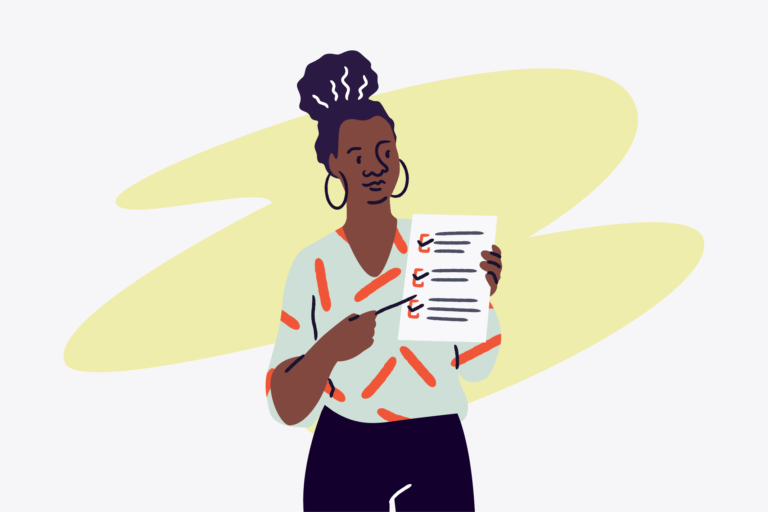Even a minor logistics oversight can sabotage an event. As soon as attendees walk in, any detail that’s out of place will be noticed – and maybe even shared on social media.
That’s why event logistics are so critical to get right. From venue and on-site technology to staffing and contingency plans, follow these event planning and logistics tips to ensure a smooth operation.
1. Find and secure your venue early
Your venue can set the tone for your entire event. Nontraditional event venues like airport hangars or greenhouses, for example, can inspire attendees to post pictures on social media – broadcasting your event to a larger audience.
From securing dates to completing event paperwork and permits, sorting out venue logistics takes time. This is even more true in the wake of COVID-19, since local regulations may limit capacity, require temperature checks, or call for other safe-distancing measures. It’s always smart to start your paperwork as soon as possible, and most experienced organisers build a buffer into their schedules to deal with unexpected requirements or developments. Finally, be sure to know what your venue’s policies are for event cancelation, just in case.
2. Map out the site for your event
Map out your venue grounds, and try to make the measurements of the ticket and vendor kiosks, restroom facilities, and any other stalls or booths as accurate as possible. Determine where any food trucks, entrances, and generators will go. Once you figure out all the elements of your event map, it’ll be easier to figure out the best entry process and work out how to accommodate lines.
Social distancing requirements can add a new wrinkle in the site layout as well. Providing enough space for the various vendors and attendees might mean limiting the number of people allowed – which could decrease the amount of revenue your event generates. If you don’t want to reduce capacity, consider booking a larger venue.
3. Come and go with the flow
Try to maintain an open space around the entrance and exit so your guests can get in and out with ease. Be sure to check out Eventbrite’s Organiser app, which enables mobile ticket scanning and check-in to help move things along.
At the end of the event, turn your entrance into a dedicated exit for even better foot traffic.
4. Set your staff up to succeed
Your staff determines how smoothly things go on the day of the event. Tommy Goodwin, director of field operations at Eventbrite, suggests event organisers create a clear chain of command among onsite staff.
For instance, appoint a gate or box office manager with in-depth training. That way, if an issue arises, such as a ticket holder who fails a temperature check, staff will have a point of contact to help resolve it.
5. Use technology to streamline event logistics
Use technology to save your team time, money, and headaches. Take advantage of apps that streamline event logistics by helping you go paperless and automate repetitive tasks. And if you’re incorporating a virtual or streaming element to your event, consider Eventbrite’s Zoom integration for easier problem-solving. Make sure to test all of your tech prior to your event to make sure everything is working.
6. Create contingency plans
Great event organisers are masters of planning for the unexpected. Use learnings from past events to anticipate problems, like traffic jams or electrical issues. And with COVID-19 prompting venue closings, restricted gatherings, and other similar regulations, it’s never been more crucial to have a plan, whatever the challenge. Prepare safety protocols for temperature checks, hand sanitiser stations, and safe distancing so you can comply with local regulations for venue re-openings.
Once you come up with the plan to resolve any issues that could arise, make sure your staff is fully briefed on how to take action if necessary.
7. Communicate key information
Even if you put all the information about your event both on your website and on-site, attendees often miss it or don’t read it. So it’s important to over-communicate, even if it feels redundant – particularly when sudden venue closings, capacity limitations, and other safety concerns create uncertainty around events. Is the event available online? Are masks required? How’s the ventilation there, anyway? These are just a few of the questions you may encounter.
Consider putting an auto-reply on your email that answers some of the most frequent questions. Be sure that your vendors have complete information about where to park and when to get set up. Provide your staff with an event planning checklist, and train them in advance on all of your key messages, such as sponsor messages, site activities, and more. Finally, at the event, have clear signage directing each type of ticket holder where to go.
8. Set escalation paths
During an event, issues tend to arise in critical areas like the box office, IT, ticketing, or power. Assign dedicated staff as the point of contact in each of these areas. Then, inform all department leads about where each type of issue is escalated. Assign an individual or small team to coordinating logistics for conferences and events with larger crowds, so escalations go to the right department.
Of course, your risk management strategies should help prevent the need for escalation in the first place. Figure out what the risks are in every major decision, and determine to what extent the goals justify them. Once you have, communicate your strategy to your team.
9. Be generous with refunds
No matter what you do, there’s still a chance that someone will be displeased. In that case, it’s absolutely worth giving them a refund. When you soothe an unhappy attendee, you reduce the risk that their negativity will spread – both during and after your event.
With all the venue closings, safety and distancing requirements, and Zoom fatigue, requests for refunds are certainly understandable. Instead of a refund, you also have the option to offer your attendees credits. Credits create more flexibility for both you and your attendees, and they can be fully integrated into your refund policy.
As venues begin to reopen for in-person events, make sure your onsite event logistics for health and safety are up-to-date with our COVID-19 Safety Playbook for Events.



